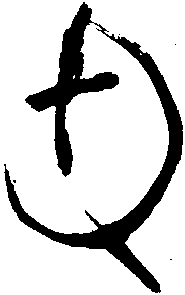COV&R-Bulletin No. 11 (Oct. 1996)
Roeloff Kaptein (1919-1996)
Our friend and colleague Roeloff ("Roel") Kaptein died on May 16, 1996. He was gravely ill with a brain tumor the last several months of his life, but his mind was usually lucid and his heart was full of love and hope as he came to the end of his mortal existence. He talked by telephone and exchanged notes with many colleagues during his last months. Roel was always the comforter of those who wanted to comfort him. He believed passionately in the work of COV&R and was ever the friendly critic who helped keep us honest with his questions and comments. He led two workshops on mimetic psychology and gave one paper at annual conferences of COV&R. He was active in the discussions, and served on the COV&R Advisory Board until his death.
Roel was a Dutch Reformed pastor in Holland prior to his retirement. He was associated for many years with the Corrymeela Community and was a consultant for the Centre for the Study of Conflict at the University of Ulster, Northern Ireland. He conducted numerous seminars and workshops in Northern Ireland whose ultimate object was understanding, reconciliation, and cooperation between Catholics and Protestants. He wrote a great number of articles, reviews, pamphlets, and books, including De ander als obstakel: een einleiding in het werk van René Girard, with Peter Tijmes (Kampen: Kok Agora, 1986) and The Way of Freedom (Dublin: Columba Press, 1993).
We are thankful for Roel's presence among us, and we offer our deep sympathy to his beloved wife Joke and all the family.
Roel Kaptein (by René Girard)
I first met Roel in France, in 1980 I believe, but it was here at Stanford that we became friends and his presence at our meeting, every year, changed our very being. COV&R was a mere handful of academics discussing academic matters in an academic fashion, and Roel's fidelity turned it into the small but genuinely international association that it now is. Our worldwide dimension suddenly meant something different from the fortuitous cosmopolitanism of American universities in the second half of the 20th century. Roel transformed us into something that, in its own modest way, partakes of the Spirit with a capital S. Roel had two qualities not often found even among younger intellectuals and, even more rarely are they found together. He was completely open to new ideas. Even the more playful intricacies of our theorizing delighted him and yet, at the same time, he was aware that the life of the intellect is not enough, that it cannot flourish for long when divorced from "real life," which is the influence we all have on one another. For me, I must say, it was a shock. He made me realize how much of an intellectual in the bad sense I always was, even and especially in my criticism of the academic world which, I felt placed me outside of it. Seeing this mimetic illusion of mine, Roel simply shrugged his shoulders. Between him and the mimetic theory, it was love at first sight and when Roel fell in love, it was for life. As soon as he first arrived here, not only all our ideas but all our lives interested him. In the last few years, he had taken the habit of visiting with members of our group in this country and in Europe. Our three day encounter was not enough for his vast appetite and he had a tendency to turn our meeting into a year round affair, one aspect of which was his writing, another his work in Northern Ireland, another still his work with all of us. Roel's dedication to everything we are trying to do is now our legacy and we will flourish, I believe, insofar as we remain faithful to it, insofar as this inheritance sustains us. Roel believed in the Resurrection and the Life and I believe with him that he is alive. But he is especially alive among certain people, his wife Joke, his family and all those who knew him. And he is especially alive here, at our yearly meeting, because he embodies our common Spirit.
Stanford, June 29, 1996



